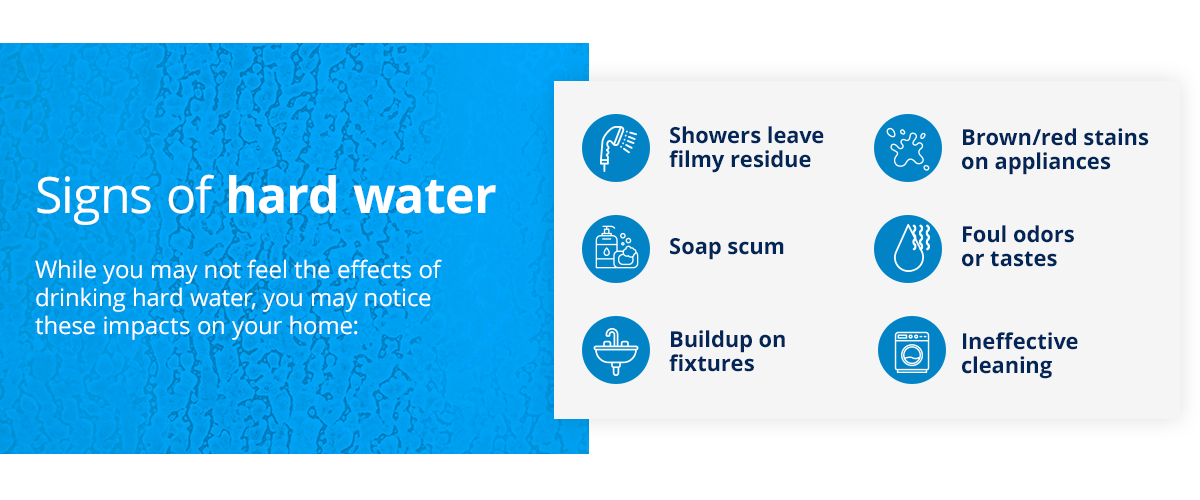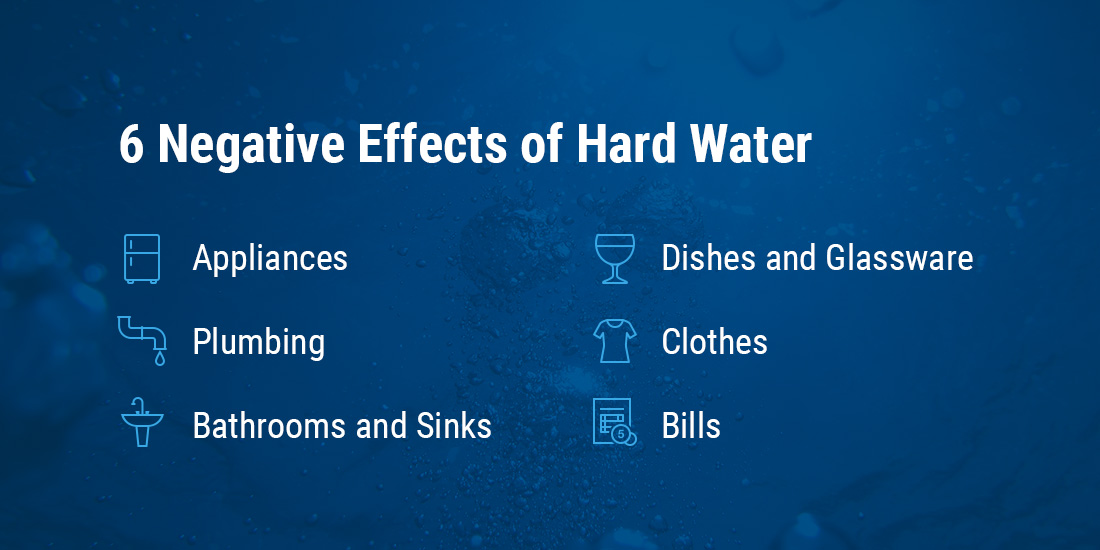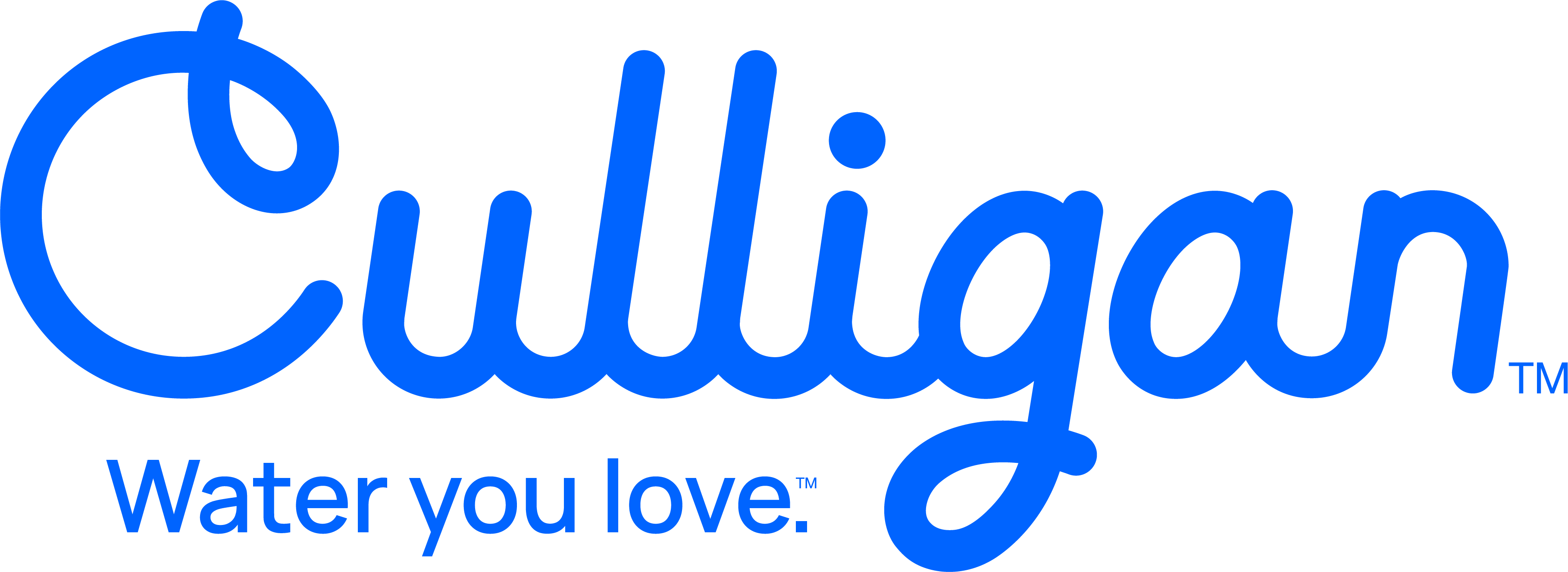Table of Contents
When you take a shower or a bath, you want to leave feeling clean, but can your water damage your skin instead?
A shower should wash off your day. However, hard water can irritate and dry out your skin, leaving you feeling “squeaky” — but not necessarily squeaky clean. Here’s a look at the effects of untreated hard water and why soft water is good for your skin.
The Difference Between Hard and Soft Water
Hard and soft water might look the same, but their chemical makeup makes the difference on your skin. Hard water contains magnesium and calcium, which can react with your bar soap to create soap scum on your body. Soap does not dissolve in hard water. Instead, it forms a layer of residue.
Soap scum is invisible, but the idea of being squeaky clean comes from the sound it might make on your skin. Although it sounds like a good thing, being “squeaky” means that you have not lathered in soap. When you bathe in soft water, bubbles form and give your skin a natural clean. If your body feels somewhat oily after using soft water, that is great! Soft water is good for your skin because it keeps your natural oils on your body instead of drying them out.

Can Hard Water Damage Your Skin?
If you are bathing in hard water on a regular basis, chances are it is clogging your pores and drying your skin too much. Scientists found in a 2017 study that people who showered with higher hard water levels had an increased likelihood of eczema. The soap scum left on their body caused irritation and stripped healthy natural moisture from their skin.
The study also found that softening the water reversed many effects of hard water on the participants. Handwashing with soft water allows for quicker and better cleansing of your hands. The soap lathers more efficiently, requiring less product, leaving your skin feeling comfortable and refreshed. You can feel the results of a water softener after one wash.
Softer water prevents a buildup of your body’s natural oils and applied products, allowing for clearer skin with less acne. Clean pores lock in moisturizers better for more smooth skin. You’ll notice a difference in your hair as well. Protecting your scalp from buildup lessens dandruff and promotes nourished hair growth. Hydrated skin offers a better look and feel from your head to your toes.
6 Negative Effects of Hard Water
Hard water impacts several areas of your everyday life at home.
1. Appliances
The type of water you use impacts your refrigerator, dishwasher and water heater. You use these appliances frequently and hard water reduces their operation quality over time. A film develops on the machines, clogging the valves and pipes. Leaks can occur, causing damages and the potential need to spend money on part replacements.
Softer water extends the life span of your essential household machines, saving you time and money. The appliances operate more efficiently, serving your needs with high-quality performance and less maintenance.
2. Plumbing
Hard water leaves a residue on plumbing fixtures, causing various issues. The soapy remnants harden as they travel down your pipes, creating the potential for solid blockages. Preventing efficient water flow slows drains, clogs toilets and interferes with garbage disposals. These conditions impact the sanitization of your home and require restoration to resume normal operations.
Clogging the fixtures weather down the quality of plumbing in your home. Your pipes may experience joinery gaps and pinhole leaks, requiring part replacements or new installations. Internal pressure can cause damage from drips, mold and flooding. Choosing softer water prevents these issues and offers a solution for long-lasting plumbing.

3. Bathrooms and Sinks
Dissolved calcium and magnesium in hard water create a cloudy shower door, white buildup on your shower head and yellow stains on a toilet. Restoring these surfaces is a challenge and requires various disinfectants. The stain removers fill your home with strong aromas as you wait for the ingredients to soak and then proceed with scrubbing methods.
Opting for soft water prevents these stains from happening in the first place. When you wash your hands, your dishes or use the restroom with soft water, a residue won’t build on your surfaces. Enjoy the look of clean bathrooms and sinks without any spots or rings. You won’t need to clean as frequently to maintain a nice appearance.
4. Dishes and Glassware
Hard water in a dishwasher mixes with soaps and detergents, creating a residue on dinnerware. Seeing white spots on your dishes after cleaning leaves you with an unsatisfied feeling. The items may need extra handwashing and drying with a cloth to look clean.
Opting for softer water ensures a pristine look after using the dishwasher. After cleaning your glasses and kitchen, they appear spotless. Washing items efficiently saves you time and gives you peace of mind when you have guests over for dinner.
5. Clothes
The type of water in your laundry machine impacts your clothes in many ways. Ingredients in detergents interact with hard water, preventing the soaps from working effectively. Bright whites may turn into a dingy grey or yellow hue and dark garments and clothing might develop streaks with stiffness and weakened fibers for easy tears, shortening their life cycle.
Softer water protects your clothes. You won’t need to wash clothes a second time or use larger quantities of detergent to achieve stainless, clean fabrics. Each cycle protects the color, texture and quality of your materials so you can enjoy your favorite outfits longer.
6. Bills
Maintenance and replacements are more frequent with hard water, resulting in higher costs to take care of your home. Even when you fix the issue, your home’s plumbing deteriorates with the continued use of hard water. Trying to operate at an average level and maintain temperature with slower flow uses more energy, increasing your bills every time you want to use hot water.
Wear and tear on your plumbing creates leaks, increasing your water bills. To save money, consider using water systems with softer water. They don’t create buildup in your plumbing, allowing for excellent flow. Homes with softer water benefit from increased efficiency and lower bills.
Is Drinking Hard Water Unhealth?
Drinking hard water will not directly lead to any serious health issues and is safe to consume in small quantities. Although hard water does not have any direct health effects, you might want to consider the additional magnesium and calcium intake in your diet. Studies have found that consuming hard water could lead to irregular bowel movements. Additionally, if you have noticed changes in your skin, you may be drinking hard water.
How to Treat Hard Water in Your Home
If you want to get rid of hard water in your home, investing in a water filtration and softener system is great place to start. These systems work to replace the calcium and magnesium with sodium ions so that your water supply is free of hard water. Water softeners also create a sodium level that’s proportional to your daily intake, so you can continue your normal diet.

If you want to avoid drinking hard water, consider installing a water softener. Our High Efficiency water softeners use smart sensor technology to go with the flow of your home. You will see and feel the difference soft water has on your body.
Turn to Culligan to Help Get Rid of Hard Water
For your most challenging water problems, Culligan Water is here to help. Our trained water treatment technicians will make your home’s water healthier, helping to improve the effects of water on your skin. If you want more information on how soft water can improve your skin, call Culligan Water at 717-746-0379 or make an appointment today!
